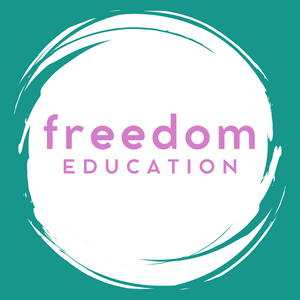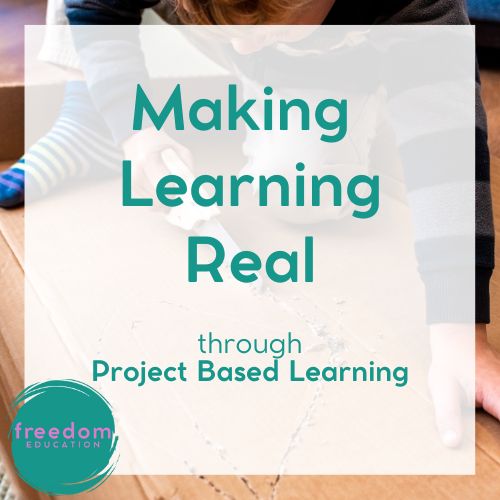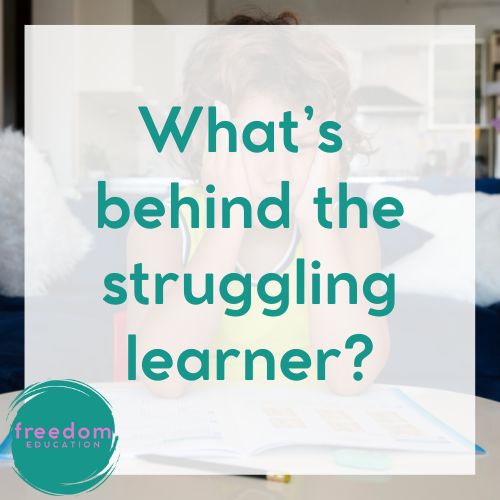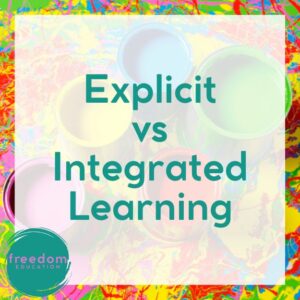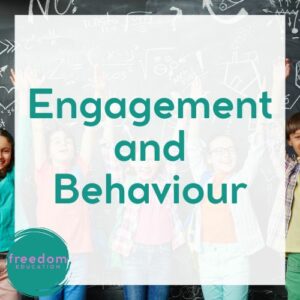
What is Learner Agency?
I am specifically talking student or learner agency in this case. Is it another one of those buzz words that float around the education world? In my opinion, NO. Although I did think it was until I learnt what it meant. So yes I guess the term itself is buzzy but what it means is most certainly not.
I will be clear right now this is not a post that is going to go deep into the pedagogy of Agency. The point of this post is to make simple what the term means, why it is important and how you could be supporting it in your classroom.
A note: I call students learners. I think this helps to minimise the “them and us”. We are all learners and we as teachers can learn alongside our students, they can learn from each other and we can learn from them. It is a small thing to help change the mindset from the teacher being the passer of knowledge to the student. What do they say? “Be the guide on the side not the sage on the stage”
So what is it?
In the simplest terms, agency means choice. Giving learners choice in their learning. Letting them have a say. Providing opportunities for them to lead their own learning. Allowing self-management to be developed.
We, as teachers, all know the importance of the key competencies from The New Zealand Curriculum. Let me highlight the below for you. The wording is straight out of The New Zealand Curriculum.
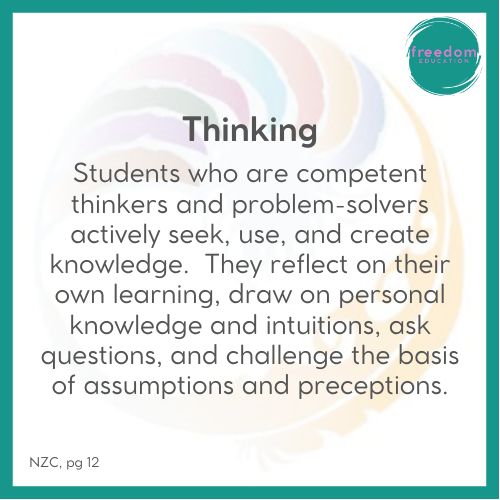
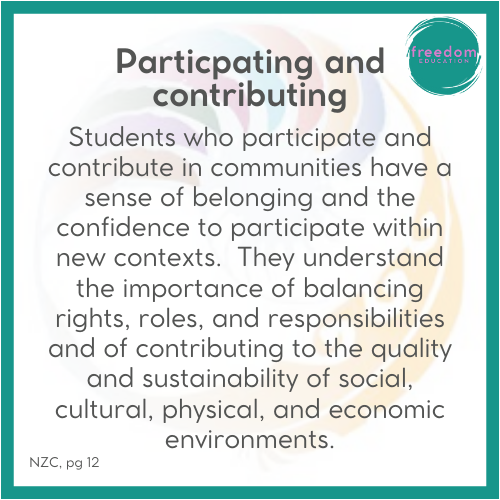
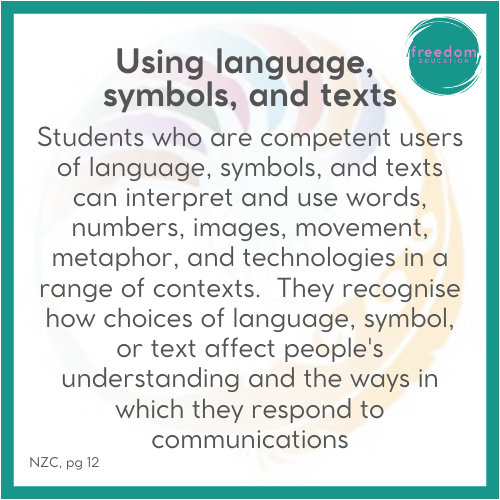
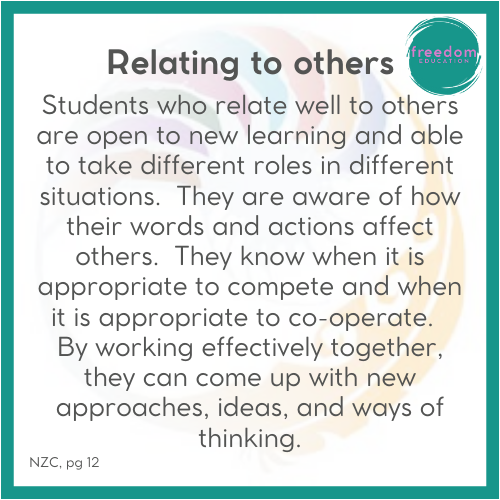
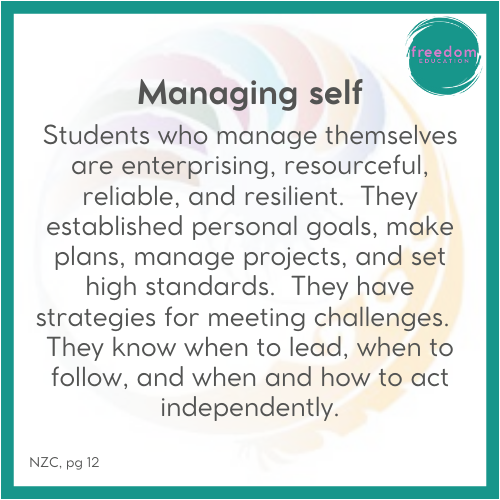

In a traditional teacher-led classroom it is my belief that we are not providing our learners with the opportunities to be the student that is mentioned in the above statements. We are not placing value on these key competencies and we are not supporting the development of “young people who will be confident, connected, actively involved, lifelong learners” (NZC Vision). We cannot solely teach these key competencies, we must support our students to learn them for themselves.
I am not going to go through each of the above competencies individually but do this for me….Read back through each of the above statements and ask yourself this. “Am I providing the best opportunities for my learners to develop these key competencies?”
What does this look like?
Think about your learning setup right now. Could I walk into your learning environment and ask one of your learners this. “What are you doing?, Why are you doing it? What are you learning from it?”. Will they know? or will the answers simply be “the teacher told me to”, “I have to” our WALT is …..”.
I like to break agency down into different ways we can provide choice to learners. How much of the below could you answer yes to?
- Where they learn?
- Can learners choose where in the class/school they learn? Can they change this for different learning activities?
- What they learn?
- Can learners choose what activities they complete? What topics they learn? What areas they spend longer/shorter learning?
- Who they learn with?
- Can learners choose to learn from a peer rather than the teacher? Can they choose to learn on their own/with a buddy etc?
- How they learn?
- Can learners choose between a face to face workshop, a video, a text, hands-on?
- When they learn?
- Can learners choose what activities to do when? Can they choose to continue an activity they are engaged it?
These questions are a great check for yourself as a teacher. Remember there is always room for improvement.
Think play-based learning. Now go and read those questions again. Hmmmm so play-based (and similar other approaches with different names) provide great opportunities to our youngest learners. Is this carried on through your school?
Play-based, project-based, passion projects, genius hour etc are all great models of learner agency. What I have found though is that often teachers (especially Year 3 up) struggle to adopt these approaches into their learning programme at the core. They often become a “once a week” type of set up and the rest of the programme is teacher-led. Sound familiar? Don’t get me wrong I am not bagging this at all, I think it is great. BUT if we are going to encourage agency let’s find a way to do it full time not part-time.
Are you thinking this sounds good, BUT.......
- Where do I start?
- My learners aren’t ready for this responsibility?
- I’m the teacher and I know best.
- What about the ones that will mess around?
- What about the curriculum areas and explicit teaching?
- Our school is too structured so it’s not up to me.
All valid questions and questions that are all addressed further in our membership.
I will leave you with these two great quotes on agency.
“One way of thinking of learner agency is when learners have the ‘power to act’. When learners move from being passive recipients to being much more active in the learning process, and actively involved in the decisions about the learning, then they have greater agency.”
Derek Wenmoth, CORE Education 10 Trends
“Students must develop the capacity to engage strategically in their learning without waiting to be directed. They must take ownership of and responsibility for their learning. And, they must possess the skills to learn independently, without heavy dependence on external structures and direction.”
Jean Garrity Ownership and Independence – The Keys to Learner Agency
**This blog post was originally written on www.sharewithus.co.nz
